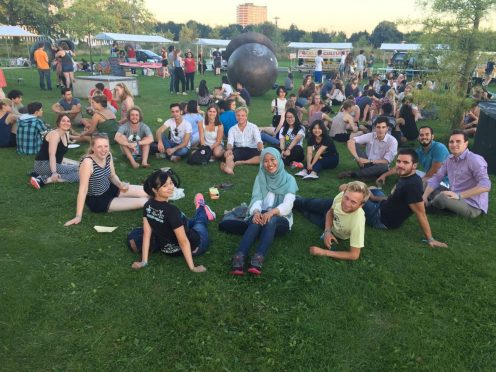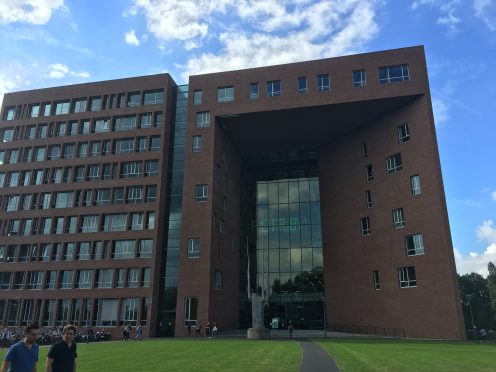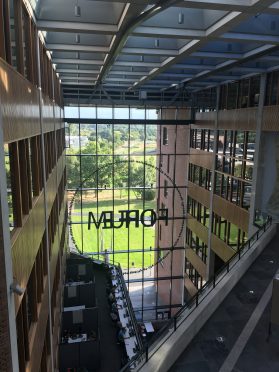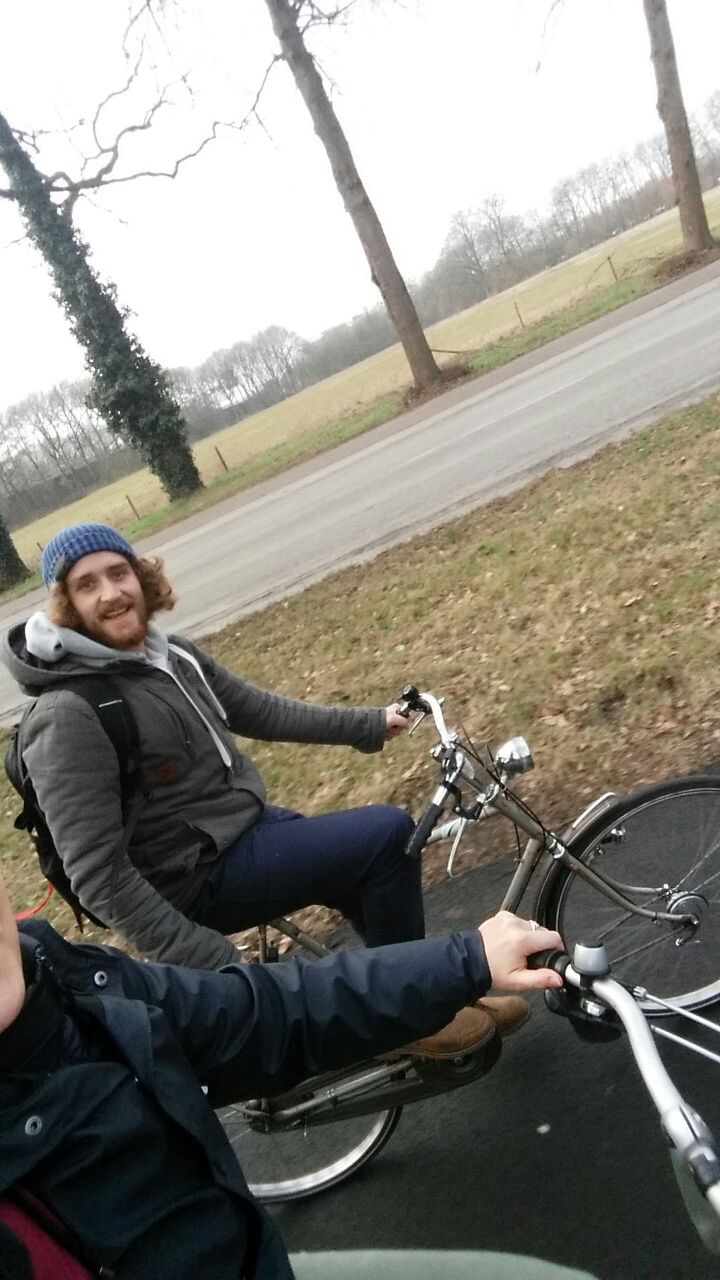Pre-departure planning:
Pre-departure is by far the most important thing when planning to go abroad. Sorting out all administrative aspects of your exchange before you depart certainly allows integration at the exchange university to be smooth and easy.
I found out the hard way that when attempting to go abroad, things are not as simple as filling in a form, getting a visa and buying an airplane ticket. Thus, my recommendation would be to decide early on what you want to do and where you want to go. From there, get straight into planning. Wageningen University accepts thousands of new international students every year, so the protocols that they have in place are efficient and effective. When you have any questions, you can send them an email. Their replies are prompt and informative. On this note, always rather ask too many questions than too few. It is their job to answer them and they will do so willingly.
Another bonus of deciding early on what you want to do and where you want to go is that it gives you plenty of time to research the host university and how it’s student life functions. As I’ve already mentioned, the more research you do, the easier your transition will be.
Make sure that you find the courses that you feel will be informative and supplementary to your degree. Also, keep in mind that you are going to be working hard to pass a number of courses with different subject matters, so be smart when undergoing your course selection. On this note, always consider the possibility of returning to the host university. The courses that you do at the host university are completely valid and hold as much weight as if you were a full time student at that university. This means that, were you to re-apply to the university and enroll as a full-time student, you would be exempt from re-doing the courses you had already completed as an exchange student.
Apart from academics, search for Facebook groups (most things at Wageningen get done online) and try to figure out how student life functions on the side of the world to which you will be heading. This site: https://www.facebook.com/groups/192901857389536/?ref=br_rs is always active. Due to the large amount of incoming and outgoing students at Wageningen University, you can find practically anything on these types of platforms. For example, I later discovered, through the Facebook platform mentioned above, that I could have done things in a much cheaper manner that would also have been more efficient and conducive to my stay at Wagenignen.
Finally, on the topic of packing, put everything out that you want to take, then halve it. As an example, my exchange took place over the European winter and I was worried that I would freeze to death. As a result, I packed a wide variety of warm clothing items. However, I ended up wearing only one or two of the jackets that I actually packed; whilst also occasionally wearing a jacket that I bought in Wageningen itself. In other words, travelling with multiple bulky suitcases is a logistical nightmare and, in any case, most things you will need can be bought at an affordable price once you arrive. Trying to lug too much luggage through public transport systems is an unnecessary stress that can be easily avoided. I can vouch for the fact that you will regret over-packing!
At the host university:

The gravity of my undertaking only truly set in once I waved goodbye to my parent’s friendly faces and stepped through the metal detectors at OR Tambo International Airport. I was on my own on a direct flight to Amsterdam, with only a few suitcases to my name. I realized then that there would be no face-to-face interaction with anyone from back home for a full eight months. That seemed a scary reality to be in.
When I finally got to the Netherlands, I sensed that things would be much worse than I initially anticipated. I say this not for dramatic effect, but because it is how I truly felt. And it may be how you, as the reader, may end up feeling as well. However, that being said, I don’t for one moment want anyone to think that studying abroad is not a truly fantastic and enriching experience. All I mean to say is: it can be tough. And, as cliché as it sounds, it is what you make of it. Studying abroad is not just a free handout. There are times where you lack the usual support structures that you are accustomed to at home. And believe me, for lack of a better word, things can get ‘real’. But, always keep in mind, that this is a natural consequence of leaving one’s comfort zone and, most importantly, it is not a continuous state of affairs. Things do get better.

Wageningen University understands that adapting to a vastly different culture can be a metaphorical shock to the system. As a result, they do their utmost to integrate their exchange students seamlessly into the existing structures, activities and support groups that the university has to offer. For one, Wageningen has a ‘Jool’ type program at the start of each new semester; not unlike the one we have here at Stellenbosch University. I firmly believe that whilst you are still finding your feet, the people you meet through these types of programs and activities are essential to helping you keep your head above water – no matter how exhausted it may make you feel.
At Wageningen, the party never stops. There is a constant atmosphere of fun and liveliness. However, when the work starts, it does tend to rush at you like a bullet train. The academic structure at the university is vastly different to the one we have at Stellenbosch. The semester is split up into three Periods. The first two Periods each have two courses. The third Period consists of only a single course. This makes a total of five courses for the semester. Furthermore, the courses are done in intensive blocks. Each course will either take up a morning or afternoon session (or block). This means that you will most likely be in class from 08:30 in the morning to 17:00 in the afternoon (if, for example, you are in Period 1, which has two concurrent courses). In the same vein, the grading system also works differently. For most of the courses your final mark is based on an exam, which is written at the end of each six-week intensive block Period. You need to achieve above a 5.5 (55%) on this exam to pass the course.

Doing an exchange at Wageningen is very academically intense. Despite this, it is both positively stimulating and relevant to your field of study. If you wish to broaden your academic horizons, whilst meeting people from across the world with similar goals and aspirations, then Wageningen University is the place for you. So sign up and you won’t have any regrets. I promise!
Return to South Africa:
As time goes by you forget about the life that you had back home and start to become accustomed to the rhythm of your ‘new’ home. If things have gone as well as it did for me, you will have completely forgotten that you are on exchange and may even consider yourself Dutch, or German, or whatever nationality you find yourself immersed in. Believe me when I tell you, eight months on exchange flies by quick as an arrow. And as new friends start to compare courses and travel plans for the upcoming semester, it is with a sad heart that you remind them that you will be heading home.
As the days’ countdown to your final departure date, emotions of feeling “left-out” start to flood through you. All you will want to do is stay where you are and carry on doing what you are doing. In stark contrast to how you felt when you left for the exchange, you now cannot think of a life outside of where you are. But, as the saying goes, all good things must come to an end. Again, the process of leaving can be made a lot smoother by keeping your head on your shoulders. Take things slow. If you try to combine saying goodbye, packing, travelling and studying all into one short space of time, you will most certainly be confronted with much unneeded stress. In this sense, pre-departure and return are one and the same thing.
From my own experience, I have found that giving small South African trinkets (that I have brought with me on exchange) to the people that have really had an impact on my life whilst abroad, helps solidify the goodbye process. As an added bonus, everybody appreciates a free “exotic” South African keychain.
With regards to flight arrangements, if your dates are flexible, I would always advise you to book your return flight for a few weeks after your final class. Your heart will yearn to do a final bit of traveling before you leave.
Finally, unlike the integration process that takes place when you arrive on exchange, the process for returning home is a lot smoother. You will have back all the little luxuries that made home special to you. That being said, you will still find home to be a little strange. You will have just returned from a one-man mission to the other side of the world; where seeing and experiencing somewhat exotic things were no more unusual than riding a bicycle. But, you will find that, at home, people have continued on with their lives as usual. The stark contrasting juxtaposition of this may seem strange. But, at the end of the day, it is rewarding and enriching in its own way.

